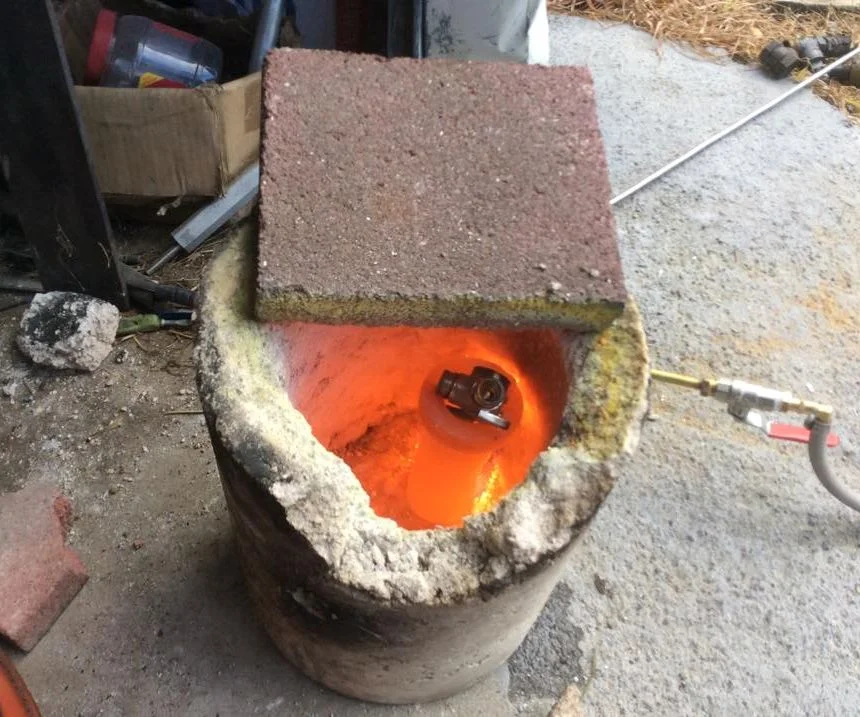The craftsmanship that defines a professional Aluminum Casting Company
Ideal Practices for Upkeep and Applications in the Aluminum Shop Sector: A Thorough Introduction
Maintaining tools in the light weight aluminum foundry industry is crucial for functional success. Regular inspections and predictive upkeep can greatly lower downtime and boost safety and security. Advanced modern technologies, such as IoT and information analytics, play a crucial role in this process. Nonetheless, recognizing the complete scope of best methods requires a better evaluation of specific strategies and their effect on efficiency. What are the essential parts that add to a reputable upkeep structure?
Value of Regular Upkeep in Aluminum Foundries
Routine upkeep plays an important function in the reliable procedure of light weight aluminum shops. By methodically servicing and checking devices, shops guarantee peak performance and durability of equipment. Normal upkeep tasks, such as lubrication, part, and cleaning replacement, help prevent unexpected breakdowns that can cause pricey downtime.
Routine checks improve work environment security by recognizing possible dangers before they intensify right into serious concerns. Equipment that is well-maintained runs extra efficiently, leading to boosted item quality and lowered waste. Additionally, adherence to an organized maintenance schedule can sustain compliance with sector guidelines, thereby fostering a reputation for reliability and top quality within the marketplace.
Implementing Anticipating Upkeep Techniques
Anticipating upkeep strategies take the concepts of routine maintenance a step better by leveraging information analytics and advanced tracking modern technologies. In aluminum shops, these approaches make it possible for operators to prepare for tools failures prior to they happen, consequently minimizing unintended downtimes and optimizing operational effectiveness. By making use of sensors and IoT devices, real-time information can be accumulated on machine efficiency, permitting the recognition of potential concerns through predictive analytics.
Enhancing Melting and Putting Processes
Reliable melting and pouring procedures are essential for optimizing performance and guaranteeing the quality of light weight aluminum spreadings. To enhance these procedures, factories ought to concentrate on exact temperature control during melting, as this straight influences the metallurgical residential or commercial properties of the alloy. Making use of advanced melting modern technologies, such as induction and resistance melting, can improve power efficiency and reduce cycle times.
Carrying out automated putting systems minimizes human error and preserves consistency in the pouring process. Correct mold prep work, including appropriate preheating, is important to prevent thermal shock and improve mold and mildew long life.

Enhancing Safety And Security Procedures in Foundry Operations
Focusing on safety in light weight aluminum shop procedures is important for shielding workers and ensuring an effective environment. Effective safety and security protocols consist of regular training sessions that stress the importance of individual protective tools (PPE), such as headgears, safety glasses, and gloves. Additionally, the facility of clear emergency treatments is important in taking care of possible crashes.
Routine examinations of devices and machinery help identify dangers prior to they intensify into major issues. Carrying out a robust reporting system urges workers to communicate safety and security worries without concern of consequence. Cultivating a culture of safety warranties that every staff member understands their role in preserving a safe workplace.
Furthermore, ensuring proper air flow and monitoring air top quality can reduce exposure to dangerous fumes and dirt. By strengthening these practices, light weight aluminum shops can significantly lower the risk of mishaps and produce a setting where workers feel valued and safe, ultimately improving overall functional effectiveness.
Leveraging Technology for Improved Efficiency
Utilizing advanced innovation has become significantly important for light weight aluminum shops intending to enhance functional effectiveness. Automation and official statement robotics play a crucial role in simplifying manufacturing processes, minimizing labor costs, and lessening human mistake. Carrying out real-time monitoring systems allows for the continual assessment of tools performance, making it possible for aggressive maintenance and minimizing downtime.
Additionally, the assimilation of data analytics gives beneficial understandings right into operational operations, assisting in far better decision-making and source allocation. Anticipating read here analytics can identify potential failures before they occur, additional enhancing upkeep schedules.
Furthermore, adopting advanced melting and spreading modern technologies enhances energy performance and product return, which are essential for sustainability in the sector. By accepting these technical improvements, light weight aluminum factories can not just increase efficiency yet also keep an affordable side in a progressively demanding market (aluminum metal casting). Inevitably, leveraging innovation is pivotal in driving innovation and boosting total operational efficiency within the industry

Frequently Asked Concerns
What Are Typical Indications of Devices Put On in Aluminum Foundries?
Typical indicators of equipment wear in light weight aluminum shops consist of unusual noises, lowered performance, enhanced vibration, overheating parts, leaks, and noticeable rust. These signs commonly signal the demand for maintenance or possible substitute to prevent costly downtime.
Just How Can I Train Staff for Effective Upkeep Practices?
To educate team for efficient upkeep methods, one can execute hands-on workshops, create detailed manuals, urge mentorship programs, and carry out regular assessments to evaluate abilities and knowledge, making certain all staff members comprehend maintenance procedures completely.
What Are the Environmental Laws for Aluminum Foundries?
Aluminum shops go through various ecological regulations, consisting of discharges control, waste management, and resource conservation. Conformity warranties marginal environmental impact, promoting sustainability while adhering to neighborhood, nationwide, and global environmental criteria and regulations.
Exactly How Do Factories Take Care Of Waste and Recycling of Light weight aluminum?
Factories handle waste and recycling by executing systems for collecting scrap aluminum, making use of sophisticated separation modern technologies, and teaming up with recycling facilities to guarantee reliable healing processes, therefore reducing environmental influence and advertising sustainability within the sector.
What Are the Prices Connected With Carrying Out Advanced Technologies?
Executing sophisticated modern technologies in factories incurs substantial prices, consisting of initial investment, training, and maintenance expenditures. The long-lasting advantages, such as raised performance and reduced waste, usually justify these expenses, leading to improved earnings. (aluminum casting company)
